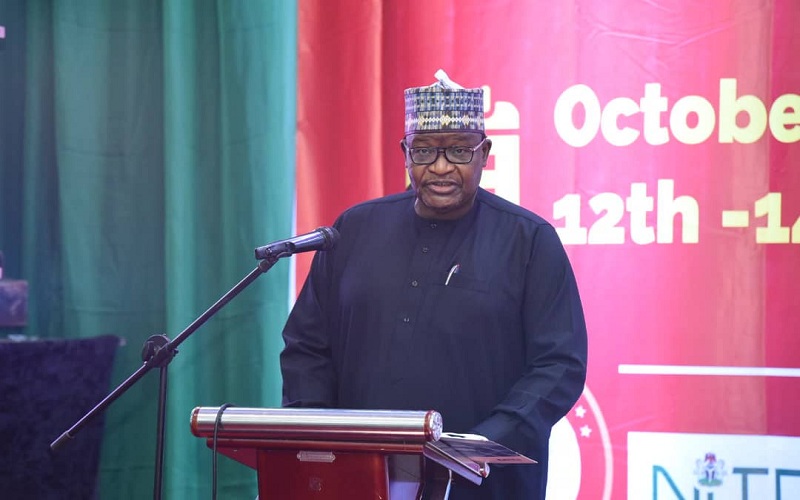Minister of Communications and Digital Economy, Dr Isa Ali Ibrahim Pantami, has called for collective efforts by all stakeholders toward enhancing the security of cyberspace for Nigerians, who now depend increasingly on digital tools and platforms to carry out their daily activities.
The Minister made the call while delivering a keynote address at the 2020 International Legislative – Stakeholder Conference on Cybersecurity at the NAF Conference Centre, Abuja, on Monday, 12th October 2020.
Represented by the Executive Vice Chairman of the Nigerian Communications Commission (NCC), Prof. Umar Danbatta, the Minister said, the conference was timely, as it was slated for the month of October, dedicated globally to raising awareness on online safety and cybersecurity.
“Cybersecurity awareness has become imperative due to the attendant risks that emanate from the appreciable migration of several transactions, meetings, lectures and other forms of interaction to online and digital platforms due to the COVID-19 pandemic,” Pantami said.
He noted further that while there are adequate laws, policies and frameworks in the country on cybersecurity, collective efforts at fast-tracking the implementation of their instruments have become more central in view of the pandemic.

The Minister said that one of those instruments is the National Digital Economy Policy and Strategy (NDEPS) for a Digital Nigeria, developed by the Ministry, with eight pillars.
The pillars include developmental regulation, digital literacy & skills, solid infrastructure, service infrastructure, digital services development & promotion, soft infrastructure, digital society and emerging technologies, as well as indigenous content development and adoption.
Pantami said the sixth pillar of NDEPS aligns with the theme of the conference, as it essentially aims at ensuring that Nigerians are secure online.
“Furthermore, Section 106(1(c)) of the Nigerian Communications Act (NCA) 2003, states the role of the Nigerian Communications Commission in the protection of consumer information.
“Similarly, the National Information Technology Development Agency (NITDA) Act 2007 Section 6(l) states the role of NITDA in promoting the development of information technology to enhance national security,” he said.
The Minister also stated that the Nigeria National Cybersecurity Framework also prescribes guidance for public and private sector organisations for instituting measures for enshrining cybersecurity culture and enthrone cyber-resiliency in Nigeria.
He further said that in addition to the NDEPS, the Ministry has also developed the Nigerian National Broadband Plan (NNBP), 2020-2025 and its implementation plan, adding that efforts in this direction are in line with the Ministry’s Solid Infrastructure pillar.
“While all these ground preparations for a digital future were going on, unexpectedly, the world was struck with COVID-19 pandemic which changed the way we live.
“The impact of the pandemic led to many measures taken by governments the world over to contain the spread of the ravaging virus. Restrictions of movement as part of the measures to abate the spread gave credence to our Digital First Ideology.
“Our plan is to move all parts of the economy to the digital platform. The outbreak of the COVID-19 pandemic, which has accelerated the transition to more digitally-enabled lifestyles and ways of working, has brought about a ‘new normal’ globally with new opportunities and possibilities being unlocked by digitization,” he said.
Pantami further stated that in view of the increased migration of services online, the Ministry’s various initiatives are helping to enhance digital literacy and skills of Nigerians.
“We are also working to ensure the privacy of their data online, as the Ministry is working hard towards making Nigeria the digital economy capital of Africa by 2023.
“There are several other ongoing initiatives geared towards supporting the promise of President Muhammadu Buhari to lift 100 million Nigerians out of poverty in the next 10 years,” Pantami said.

